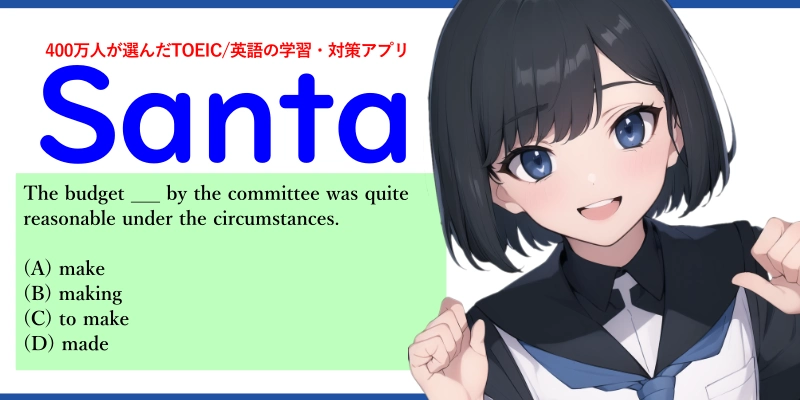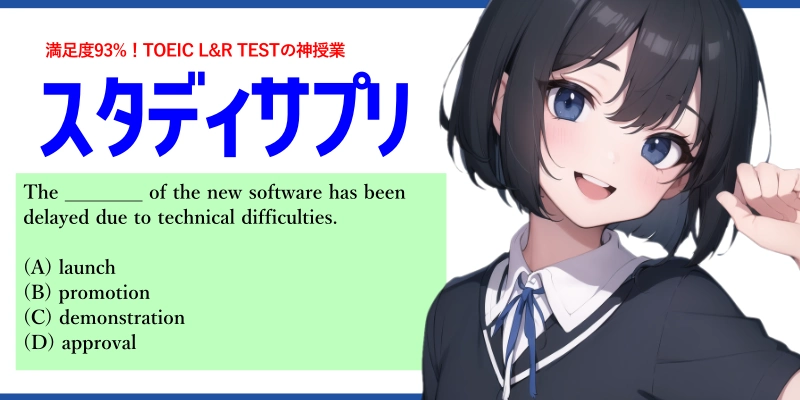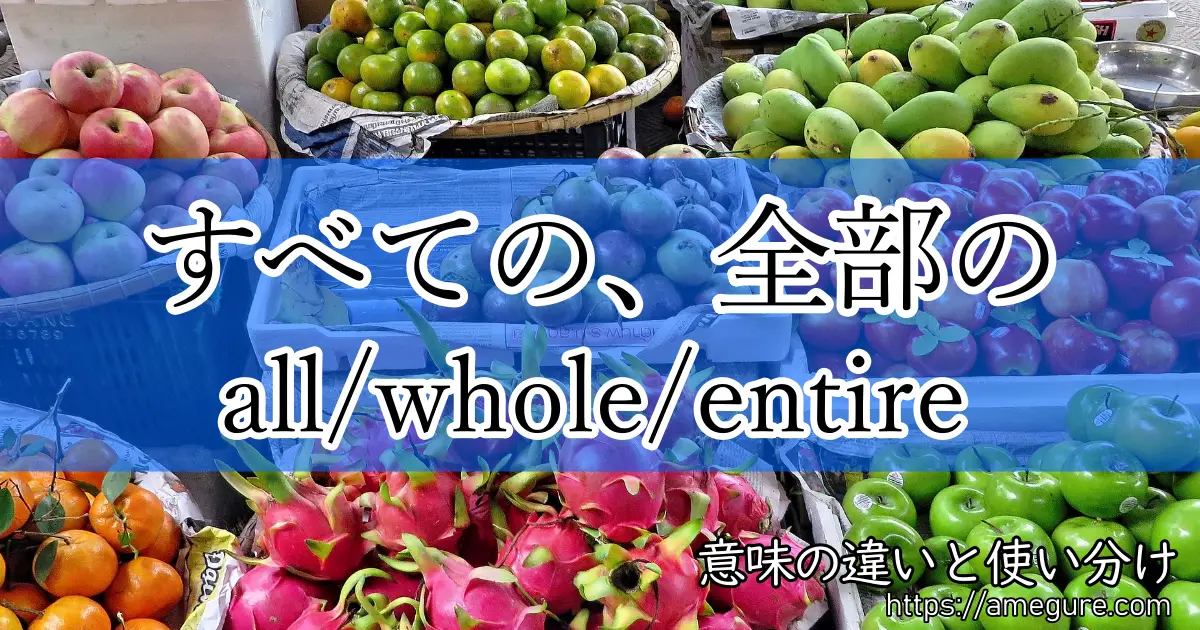英語で「すべての、全部の」を表す単語

all(オール)

whole(ホゥル)

[ entire(エンタイア)
の違いを理解します。
allの意味の違いと使い分け

[形]すべての、全部の
☆ポイント☆数や量が「あるだけすべて、全部」という意味。例えば100人いたら100人、5個だったら5個全部ということ。一部wholeと同意の部分がある(例all day=the whole day)
All children were laughing out loud.
すべての子供が大笑いしていた。
I have read all his books.
彼の持っている本をすべて読み終えた。
wholeの意味と用例文

[形]すべての、全部の
☆ポイント☆1つのかたまりとして「丸ごと全部」という意味。例えばwhole cake(ホールケーキ)、a whole body(体全体)、a whole year(丸一年)など。
I will have a summer vacation for a whole month.
1ヶ月間丸々と夏休みを取るつもりです。
entireの意味と用例文

[形]すべての、全部の
☆ポイント☆wholeと同意であるが、特に(ひとつの)かたまりを強調したい場合に使うことが多い。欠けた部分が無い、全て揃っているというニュアンスが強い。
I spent the entire day in my house.
一日中ずっと家にいました。(一歩も外に出なかった)
all/whole/entireの違いをもっと詳しく
all
the whole of an amount, thing, or type of thing
every one of a number of people or things, or every thing or person of a particular type
whole
all of something
entire
used when you want to emphasize that you mean all of a group, period of time, amount etc
Longman現代英英辞典の説明も見ていきます。
(量や物、種類のすべて)
と説明があります。
「量や数があるだけ全部」という意味ですね。
(ある物のすべて、全部、全体)
との説明です。直訳的に言うと「あるものの構成物の全て=丸ごと全部」といった感じでしょうか。
(グループや時間、量などのかたまりを強調したい時に)
と説明があります。
wholeよりも全部が揃っている事を強調したい時に使うということが分かります。
まとめall/whole/entireの違い
all…あるだけすべて、全部という意味。一部wholeと同義の部分あり。
whole…1つのかたまりとして丸ごとすべて、全部という意味。全体。
entire…wholeと同義であるが、より「かたまり」を強調したい時に。欠けているものが無いというニュアンスがある。

練習アプリ

スタディサプリ ENGLISHのダウンロードはこちら

